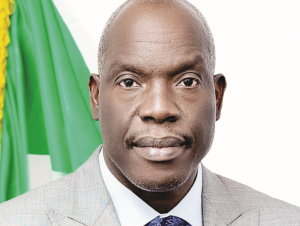
With the drafting of post Petroleum Industry Act (PIA) regulations, including the Frontier Exploration Fund and the Host Community Development Fund, the Nigerian Upstream Petroleum Regulatory Commission (NUPRC) is expected to steer the industry to the path of growth and increased value addition. Series of engagements with stakeholders, particularly the upstream players, will see more successful search for oil and gas in the frontier basins of Nigeria and improved spending on host communities, writes AMBROSE NNAJI
Search for new oil wells and funding support for host communities are two critical components of the Petroleum Industry Act (PIA), now under implementation. At the centre of these goals is the Nigerian Upstream Petroleum Regulatory Commission (NUPRC), which is already holding consultations on how to effectively sustain growth of the Nigerian oil and gas industry as well as support the host communities.
The NUPRC has already commenced the second phase of consultations on the much-talked-about Frontier Exploration Fund (FEF) as well as regulations on decommissioning and abandonment of assets by oil and gas operators. Whereas there was no concrete framework on both industry issues before now, the Petroleum Industry Act (PIA) now provides for strong rules on how oil companies would henceforth decommission or abandon their facilities without causing harm to the environment.
The Frontier Exploration Fund (FEF) will, under the guidance of NUPRC, be deployed annually to fund search for oil and gas in the frontier basins of Nigeria under the PIA regulations. It will be mainly extracted from 30 per cent of the Nigerian National Petroleum Company (NNPCL) profit from oil and gas, while three per cent of operating expenditure approved under the Act, would be spent on the Host Communities Trust Fund (HCTF).
Speaking during the new round of consultations, the NUPRC Chief Executive, Gbenga Komolafe, disclosed that progress had also been made on the phase one of the exercise, leading to the gazetting of the host communities’ fund. The fund is expected to provide the much-needed relief for oil producing areas of the Niger Delta who have been subjected to years of neglect by the oil companies and the government. Other draft regulations to be considered include: Acreage Management (Drilling and Production); Regulations and Upstream Petroleum Environmental Regulations as well as the Upstream Petroleum Environmental Remediation Fund Regulations. Also up for discussion during the three-day event are the Upstream Petroleum Safety Regulations and the Unitisation Regulations.
Represented by the Executive Commissioner, Health, Safety, Environment and Community, NUPRC, Capt. John Tonlagha, Komolafe stated that the consultation was in furtherance of the initial rules reviewed in April. The NUPRC chief executive recalled that six draft regulations were presented for discussion in April during the first phase of its consultations with stakeholders. According to Komolafe, the stakeholders’ inputs from the engagement were incorporated, where necessary, in the draft regulations which were forwarded to the Attorney General of the Federation and Minister of Justice for vetting, legislative standardisation and approval.
While one of the regulations, the Host Communities’ Trust Fund regulation had been gazetted, Komolafe stated that the remaining five had been finalised and ready to be gazetted. “Our commitment to create an enabling environment for growth and investments in the upstream oil and gas industry in Nigeria has steered our focus towards working with all stakeholders. This can be seen in our efforts to ensure that regulations and key policies necessitated by the PIA are developed and gazetted timely so that the industry operators can align their operations with the PIA provisions as quickly as possible,” he stated.
Komolafe reiterated that the process of formulating the regulations had been rigorous being products of critical evaluation and hard work by the commission’s regulatory development team and the presidential implementation committee on PIA. “Please permit me to reiterate that the process of formulating the above regulations has been a rigorous and strenuous exercise. They are products of critical thinking and evaluation, and hard work by the commission’s regulation development team and the Presidential Implementation Committee on PIA.
“Despite this, however, the process is not complete until the stakeholders’ critical inputs are obtained, discussed, and incorporated, where necessary, in the regulations. To this end, I am of the firm view that with the level of turnout today, we will have healthy, robust, and intellectual discussion on the regulations during the syndicate sessions to come out with robust regulations with best international best standard.
“In conclusion, this phase in our regulations development is by no means a final or exhaustive one in our drive to support the upstream industry operators. The commission will continue to embark on programmes and policies that will create enabling environment for growth and more investments in the Nigerian upstream oil and gas sector,” he assured.
Speaking earlier, the Commission’s Head of Compliance and Enforcement, Dr Joseph Tolorunse, said that the forum served as an avenue to listen to stakeholders’ views on the regulations and secure their buy-in, which would determine PIA’s implementation. He maintained that it had been confirmed empirically that if stakeholders were part of the regulations making process, compliance would be achieved easily. “With this procedure of rule-making, it is believed that consensus will be built, trust between the regulator and the regulated entities will improve and ultimately the regulations will be easier to implement and sustained,” he stated.
Also in attendance were stakeholders from the oil and gas industry, officials from the World Bank, indigenous and International Oil Companies (IOCs), among others. Analysts said the PIA gives host communities some percentage of the oil revenue.
Frontier Exploration Fund/ Host Communities Development Fund

Lagos-based oil and gas expert, Stevens Michael, explained that the Frontier Exploration Fund was created under the Petroleum Industry Act to be managed by the NURPC for the purpose of exploring possible frontier oil basins not yet discovered in Nigeria. He disclosed that Section 9(4) of the PIA provides that the FEF will be made up of 30 per cent of NNPC Limited’s profit oil and profit gas – profits from its oil and gas exploration transactions
According to Michael, the Host Communities Development Fund is a category of fund created under the Petroleum Industry Act to be managed by each Host Communities Development Trust set up by settlors (companies with mining and prospecting licenses on a project) for the purpose of contributing economic and social benefits to host communities where oil & gas is being explored.
Section 240(2) of the PIA provides that each settlor shall make an annual contribution of three per cent of its actual operating expenditure (OPEX) into the HCDT Fund. “This means that where an oil company is exploring oil resources through an OML or OPL in the upstream sector, such a company will have to contribute three per cent of its OPEX to Host Communities,” he said.
Michael said the interface of NUPRC in the oil and gas industry and passage of PIA will promote the creation of job opportunities both directly and through petroleum and gas-based industries, plus other industries that are ancillary to them. It will also boost youth employment within the host communities. “It will attract more foreign capital inflows and boost market-driven competition. This would mean a capacity for firms both local and foreign that are domiciled in Nigeria to take care of all the segments of the value chain at the upstream, midstream and downstream sub-sectors of the industries,” he said.
The NUPRC recently announced the unveiling of the Template and Procedure Guide for the Host Communities’ Development Trust (HCDT) for commencement of implementation of the provisions of Section 235 of the Petroleum Industry Act (PIA) 2021. The unveiling of the template on host communities fund administration was a major development for oil-producing areas of the Niger Delta who are expected to benefit from the three per cent operating expenses of oil companies in the area. Section 235 of the PIA provides for the incorporation of Host Communities Development Trust by the Settlors, that is, the oil and gas companies, for the benefit of their hosts. It places the responsibility to set up the HCDT and appoint the Board of Trustees (BoT) on the companies in consultation with the host communities. In addition, Section 247 of the Act requires the BoT to set up a management committee to handle the general administration of the fund.
The HCDT provided by the PIA proposes to advance the development of the host communities within the scope of funds available to the BoTs for such purposes. It is also envisaged that sabotage of oil and gas infrastructure will be reduced since local communities now have a slice of the pie. Since the regulations, which were officially unveiled by the government, are now ready, the managers of the fund should be announced anytime soon. Analysts applauded Komolafe for leading NURPC at this critical time, and having the courage to see the marginal oilfields award completed seamlessly.
Petroleum Industry Act
Prior to the enactment of the Petroleum Industry Act (PIA) 2021, the fields were classified as marginal when they were not considered by licence holders for immediate development due to assumed marginal economics under prevailing conditions or left unattended for more than 10 years. They also included assets that leaseholders considered for farm-out due to portfolio rationalisation or those, which the president may, from time to time, identify as such.
Komolafe noted that the engagement with the marginal field awardees and leaseholders was for NUPRC to state the policy position on the 2020 Marginal Fields Bid Round (MFBR). He stated that this would enable successful awardees progress to field development phase in line with the PIA. He stated that the marginal field initiative was conceived to entrench the indigenisation policy of the government in the upstream sector of the oil and gas industry.
According to him, the objective is to promote indigenous participation, increase oil and gas reserves, as well as production, encourage capital inflow, generate employment, and build local capacity in the sector. Komolafe noted that relevant leaseholders had also been invited to the forum so that they could understand their roles and responsibilities as it affects the farm-out of the fields, which he said included facilitating the achievement of first oil in a collaborative manner.
In all, he reiterated that 57 fields were identified for the 2020 bid round exercise, and a total of 665 entities expressed interest, explaining that after extensive evaluation processes as laid down in the guidelines, 161 entities emerged as potential awardees.
Komolafe explained that signature bonuses for 119 awards were fully paid, nine awards were partly paid for, and 33 awards had yet to be paid for; a situation he said had resulted in various challenges inhibiting the close-out of the exercise. The 2020 oil bid rounds conducted by the NUPRC were awarded in June this year. Komolafe disclosed that in the process of getting to conclude the bid rounds, about N200 billion was raked in from the 57 oil fields to the coffers of the federal government, plus an additional $7 million in signature bonuses and others.
Kindly contact us @ Naijalivetv@gmail.com
Call or Whatsapp: 07035262029, 07016666694, 08129340000





